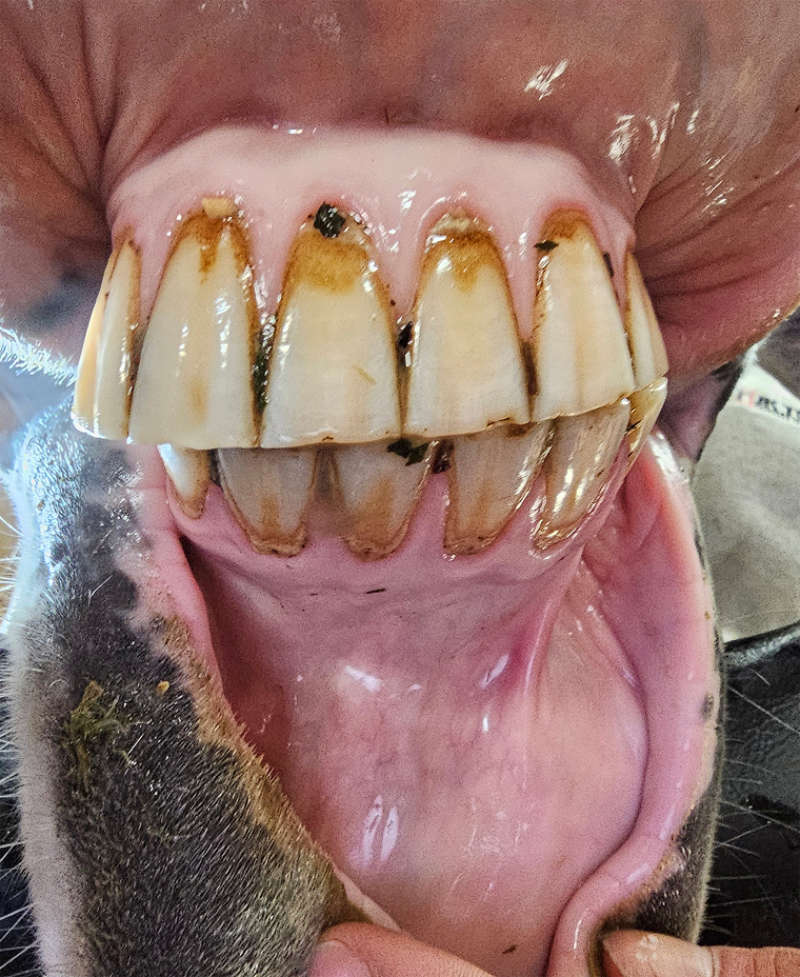Equine Dentistry
Keeping Your Horse Healthy and HappyJust like humans, horses require regular dental care to maintain their overall health and well-being. Equine dentistry is an essential part of your horse’s overall health and well-being, playing a crucial role in ensuring that your horse’s mouth is in good condition, preventing pain, discomfort, and even more serious health problems.

Our Approach
Taking care of your horse’s teeth is an investment in their health, performance, and happiness. By making regular dental visits a priority, you ensure that your horse stays comfortable, healthy, and ready to perform at their best.
Dr. Waring-Scott has a passion for equine dentistry. She has performed thousands of dental floats and attended multiple continuing education seminars with some of the best veterinary dental specialists in the country to make sure Excelsior Equine delivers the best dental care for your horse.
Why Regular Dental Check-Ups Are Essential For Your Horse’s Health
1
Prevention of Dental Problems
Horses’ teeth are constantly erupting throughout their lives, and as they chew on hay, grass, and other feed, their teeth naturally wear down. However, sometimes the wear doesn’t happen evenly, leading to sharp points or uneven surfaces. These irregularities can cause discomfort or injury to the horse’s mouth, cheeks, or tongue, and even affect their ability to eat properly. Regular dental exams help catch these issues early, allowing for timely adjustments to keep your horse’s mouth in optimal condition.
2
Improved Nutrition and Performance
Horses rely on proper chewing for good digestion. If a horse has dental issues such as misaligned teeth, they may struggle to chew their food properly, leading to incomplete digestion or loss of nutrients. This can result in weight loss, malnutrition, and decreased performance. By maintaining a healthy mouth, your horse can chew efficiently, leading to better absorption of nutrients from their food and supporting overall performance in both work and competition.
3
Prevention of Painful Conditions
In addition to sharp points and uneven wear, horses can develop other dental issues like periodontal disease, tooth decay, or abscesses. If left untreated, these conditions can cause severe pain and even lead to tooth loss. Regular check-ups and dental care can catch and treat these conditions early, preventing your horse from suffering unnecessary pain and discomfort.
4
Behavioral Benefits
Dental problems in horses often lead to changes in behavior. A horse that is in pain may start to refuse food, become difficult to bit, or display irritability under saddle. By maintaining good dental health, you can prevent these behavioral issues, helping your horse stay comfortable and cooperative during daily routines, riding, and training sessions.
5
Long-Term Health and Longevity
Regular equine dental care contributes to your horse’s long-term health. Horses with neglected dental care may experience a decline in their overall health, affecting not only their mouths but also their digestive system, temperament, and performance. Keeping on top of their dental health allows them to live a longer, happier life free from unnecessary complications.
6
Tailored Dental Care for Every Horse
Each horse is different, and their dental care needs can vary based on age, breed, and use, and should be monitored to ensure small problems are corrected before they become serious. Older horses may require extra attention to deal with age-related wear and tear. Working closely with your equine veterinarian ensures that your horse gets the specific care they need, tailored to their individual dental health requirements.
Frequently Asked Questions
Find answers to our most commonly asked questions on our equine dentistry services.
Answered by Dr. Waring-Scott
Does my horse need to be sedated?
Yes. Dr. Waring-Scott will sedate all horses for dentistry. Using sedation and a dental speculum in equine dentistry is essential for ensuring both the safety and comfort of the horse during the procedure. Horses can be nervous or sensitive when having their teeth examined or worked on, and without sedation, they may become stressed, making it difficult to perform a thorough examination or treatment. Sedation helps relax the horse, reducing the risk of injury to both the animal and the handler. It also quiets the movement in the mouth allowing for a much more thorough evaluation of all the structures in the mouth. (Note: it is ILLEGAL in New York for anyone besides a veterinarian to administer sedation to your horse!)
Why is a qualified equine veterinarian the best choice for my horse's dental needs?

Request an Appointment
Now scheduling appointments in Central and Northern New York. Large group appointments available throughout all of New York state.
